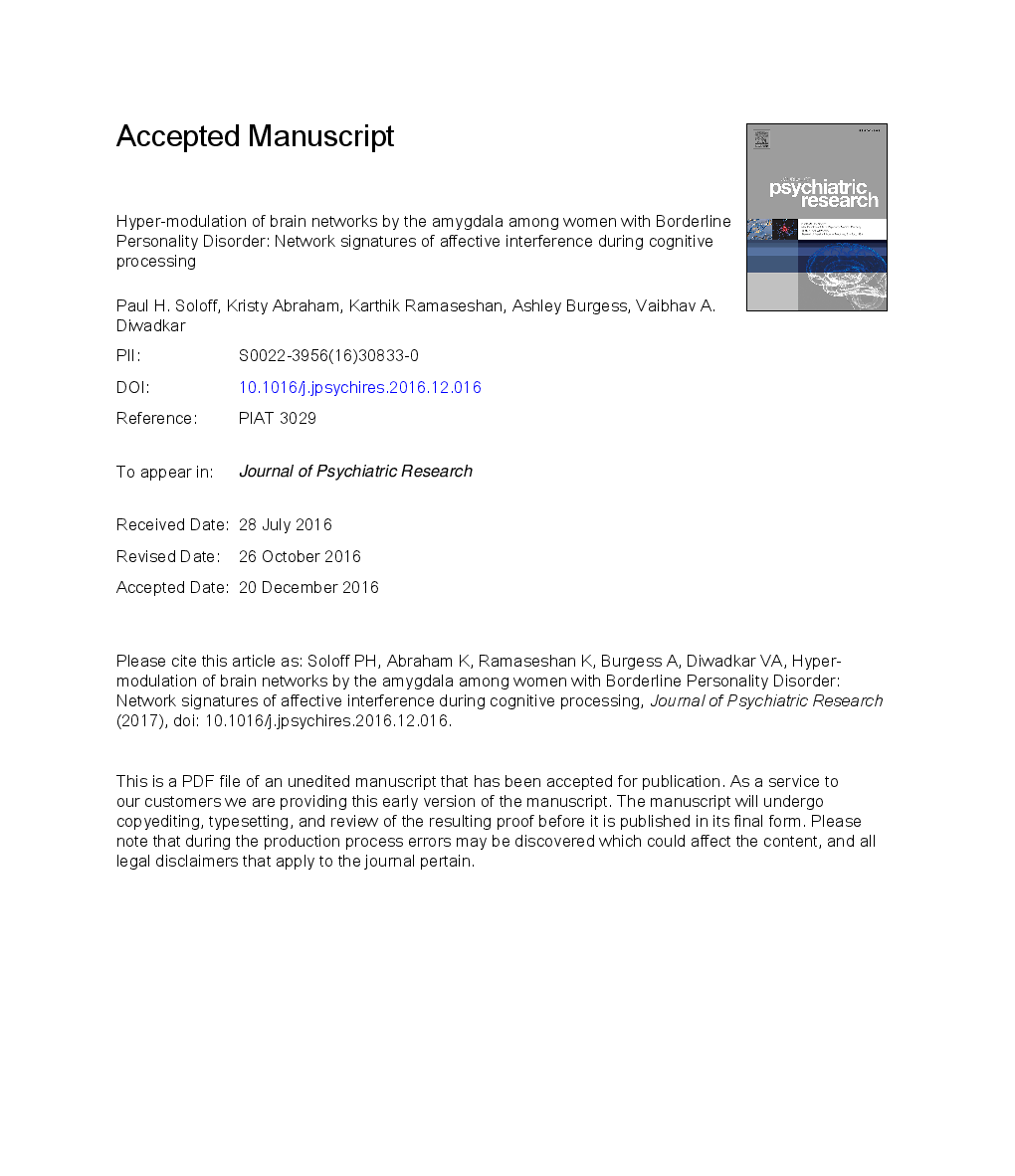ترجمه فارسی عنوان مقاله
بیش از حد مدولاسیون شبکه های مغز توسط آمیگدال در زنان مبتلا به اختلال شخصیت مرزی: امضای شبکه تداخل عاطفی در طول پردازش شناختی
عنوان انگلیسی
Hyper-modulation of brain networks by the amygdala among women with Borderline Personality Disorder: Network signatures of affective interference during cognitive processing
| کد مقاله | سال انتشار | تعداد صفحات مقاله انگلیسی |
|---|---|---|
| 121076 | 2017 | 33 صفحه PDF |
منبع

Publisher : Elsevier - Science Direct (الزویر - ساینس دایرکت)
Journal : Journal of Psychiatric Research, Volume 88, May 2017, Pages 56-63

